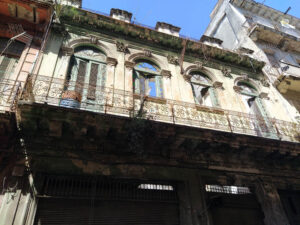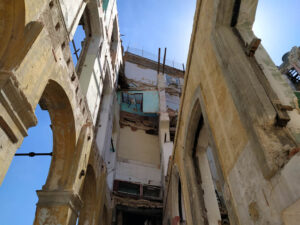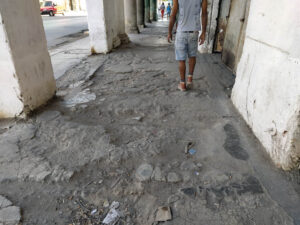HAVANA, Cuba. – The splendor of Havana is a thing of the past. I suspect that hypocrisy and manipulation more than blindness and chauvinism are behind the “enthusiastic” narratives -as divorced from the harsh reality of living and surviving in this city as they are- with which they try to put one over us.
In order to love a city or the place where we grew up and live, where we were born and which we may leave and still, at times or always, carrying it in our memory, it is not necessary to lie, or fool ourselves ascribing to it a charm that it no longer possesses, trying to convert poverty into the attributes that are no longer. Not when the truth is gloomier than mere ugliness and neglect.

Today, our city is not just a neglected and ugly place like hundreds of cities that can be found around the world: it is, perhaps, the paradigm of the uninhabitable. To prove it, let’s ask those who have travelled that long path of neglect, of ideological “priorities”, of segregations and forced displacements that have been going on for 60 years.
Behind every building in ruins, behind each razed space, even where today a great hotel may stand or the project of a future one, a past tragedy can hide or is waiting to happen, a place of indolence and ill wills, of loses and mourning, and those very things take away all the beauty of any urban space, even though the powers that be want us to see it as show windows of a society and a “political will” whose shady backdrop we have slowly discovered.

How can we admire a place where dying suddenly, smashed under a building that has collapsed and overwhelmed with anguish and shortages, is a daily occurrence more than a probability, a mere fatality, or plain chance? How can we – hostages of a political failure, of an economic debacle- continue to say that we love that lethal object from which we need to flee and distance ourselves to survive? Could it be that such a “love” is only nostalgia for what is gone, for what we let die because of our own indifference, because of the temporality of a city, a country that only serves as a bridge to a definite location, that location which is always on the other side of the sea. Never here, never now.
A city that makes you fall in love with it, alive and interesting, will never be just the inventory of a few edifications and enabled streets, like props on a set, for the exclusive enjoyment of tourists, while the people who inhabit it on a daily basis, like second-class citizens who are relegated by the foreign visitor, lives in a perpetual war of fears, unsanitary conditions, prohibitions, discriminations, mistreatments, contempt and rudeness.

Who can be spared from so much misery? Who is immune to it? Regardless of how much we try to be spared, be it from the economic “prosperity” of a private business or from remittances, or from political compliance and corruption, this indigent city, while still pretending to be “fascinating” in this wretched country, will clock us in spite of “cast privileges” and will soon make us all miserable.
Havana has become a city that stinks all the time and everywhere, a city that stinks of dried urine, of sewers, of garbage dumps, of furniture and old mattresses, of humid walls and ceilings, of rotten water and dirty clothes, of the sweat of hungry multitudes under the sun who are waiting for a miracle, an escape, or death.
Some time ago, a certain Spanish friend who visited Havana for the first time to work as chef in one of his hotels, spoke to me about the smells of Havana and of his disappointment when he compared the greatness he had read and heard about with the day-to-day living conditions he actually endured, which, as a foreigner, were much better than those endured by the average Cuban citizen.
“This is a city where everyone cooks what he or she can, whatever they invent, and not what they would want to eat or dream about eating; it is a city that always smells of poverty,” he said to me not in those exact words. To him, the city that he was describing, with the foul smell of rotten food is precisely the Havana that more than half a century of Communist dictatorship has left us with, a city where there is no bread on the table, or snacks in children’s pockets, and just those two things lacking make this city a boring, sad, dark, and dying place, in spite of the fact that in tourism post cards the publishers insist on retouching it to reflect what it no longer is, not even on a sunny summer day.

In a few days, on November 16, Havana will celebrate the 503rd anniversary of its founding, a little more than half a millennium of existence. In world history, that is the age of maturity for a great city, and it’s the time when most great metropolis in the world are reborn after finding a way out of the decadence that, like cycles that open and close, follow the eras of splendor. However, Havana today, like the entire island, is a dark and foul-smelling dead end.
ARTÍCULO DE OPINIÓN
Las opiniones expresadas en este artículo son de exclusiva responsabilidad de quien las emite y no necesariamente representan la opinión de CubaNet.
Recibe la información de CubaNet en tu celular a través de WhatsApp. Envíanos un mensaje con la palabra “CUBA” al teléfono +1 (786) 316-2072, también puedes suscribirte a nuestro boletín electrónico dando click aquí.




